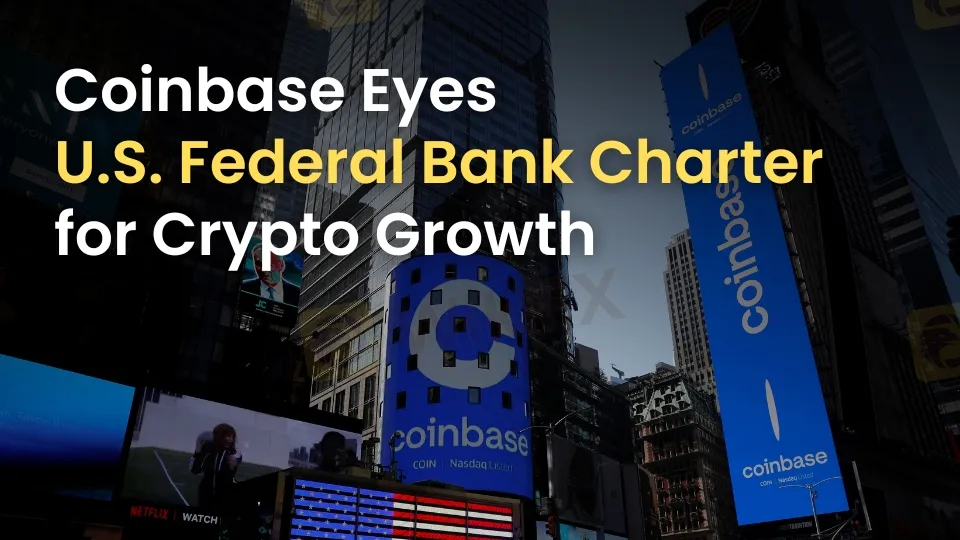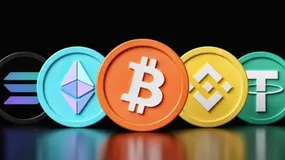If you haven't noticed yet, the crypto market is in free fall, but why?
Crypto has been falling rapidly the past few weeks with no indication of slowing down.
简体中文
繁體中文
English
Pусский
日本語
ภาษาไทย
Tiếng Việt
Bahasa Indonesia
Español
हिन्दी
Filippiiniläinen
Français
Deutsch
Português
Türkçe
한국어
العربية
Abstract:Coinbase explores a U.S. federal bank charter to expand crypto services, aligning with stablecoin firms like Circle and Paxos amid evolving regulations.

Coinbase, America‘s biggest digital money platform, is thinking about getting a U.S. bank license, the company said on April 22, 2025. “We’re looking at it, but havent decided yet,” a statement from Coinbase spokesperson.
This idea is part of a bigger trend in the crypto world. Other companies like Circle and Paxos, which make stablecoins, and BitGo, which keeps digital money safe, are also considering bank licenses. If they get one, they could act like regular banks—letting people save money or borrow it—connecting digital coins to everyday banking.
Coinbase didn‘t say why they want this, but a bank license means following tougher rules, like sending more reports and sticking to strict laws. Anchorage Digital, the only crypto company with a bank license right now, has been watched closely by police groups like the Department of Homeland Security’s El Dorado Task Force. This shows Coinbase might face some trouble too.

The interest in bank licenses comes as U.S. leaders start to like stablecoins more. Jerome Powell, the boss of the Federal Reserve, said recently that stablecoins are getting big and having rules for them would be “a good idea.” This could help Coinbase and others fit better into the money system.
In Congress, two big laws about stablecoins are being worked on. The STABLE Act wants the government to watch closely, stopping some stablecoins for two years if they‘re tied to a company’s own stuff, and keeping savings separate from business cash. The GENIUS Act mixes state and federal rules, pushing for stablecoins linked to the U.S. dollar with clear savings and anti-crime laws.
Coinbase wanting a bank license shows how crypto companies aim to grow into regular banking. As digital money gets more popular, Coinbase and others want to act like normal banks, using licenses to seem more trustworthy and offer more services. It‘s not clear yet if this will make Coinbase a leader in mixing crypto and banking, but it’s a sign big changes are coming.

Disclaimer:
The views in this article only represent the author's personal views, and do not constitute investment advice on this platform. This platform does not guarantee the accuracy, completeness and timeliness of the information in the article, and will not be liable for any loss caused by the use of or reliance on the information in the article.

Crypto has been falling rapidly the past few weeks with no indication of slowing down.

Discover PU Prime’s new campaign, “The Grind,” and learn how trading discipline builds long-term success. Watch and start your trading journey today!

IG boosts FCA compliance by integrating Adclear’s AI tools. Learn how automation accelerates marketing approvals and ensures regulatory accuracy.

Join forex expert Tom as he shares his journey, trading wisdom, and thoughts on AI and the future of forex in WikiFX’s inspiring “Inside the Elite” interview.
